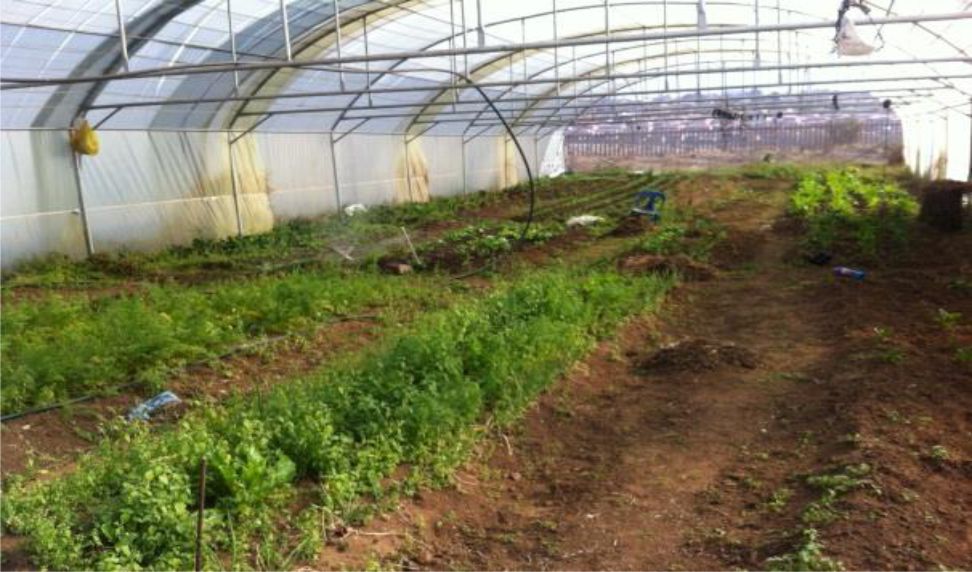
Footprints Hospice tends to the health care needs of individuals who often have no one else to help them in their time of need.
We are a 30 bed facility (four wards with seven beds each and, a side ward used as a screening room with two beds). We offer around-the-clock care. Of our 30 beds, a mere five (5) are subsidized by the Gauteng Department of Health. Further, those five (5) beds can only be given to patients with HIV/AIDS and cancer who are in acute or terminal stage.
Beyond what is the trend with other hospices, i.e. a maximum 14-day stay admission, at Footprints Hospice the length of stay is client-sensitive and therefore determined, by the client’s needs. Helping deliver our quality care and support services on four levels namely Acute or Terminal; Chronic; Respite; and Medication Compliance Monitoring.
Food Gardening (0rganic)
This award-winning (Impumelelo Innovations Silver Award: 2005) organic vegetable and herb garden grown at our earlier location came into being as a project on 1 May 2004. It had a single purpose: to provide healthy, organic vegetables for us to feed our patients, and herbs to use to treat minor medical conditions such as upset stomachs and thrush.
Land has been obtained in three schools in Orlando East. Currently we have three sites for food gardening. Besides our food gardens we have established 16 home gardens for our discharged HIV /AIDS patients. We had 10 gardeners trained by Food and Trees and have retained only four of these because of financial constraints
The vision for the Food Gardening project has since expanded to include the following objectives:
- To become self-sustaining and thereby generate income to support Footprints Hospice.
- To provide food gardening skills to the unemployed.
- To create jobs-as those we train are expected to replicate the food gardening project and employ others where possible.
- To provide food security which becomes increasingly significant as food prices escalate.
- To educate and improve on the health of the community at-large by offering free seminars on various food-gardening-related topics. Winning the above stated award partly reflects vision turned into mission and testifies to our dedication in this aspect.



Footprints Development Stratagies
With the HIV/AIDS pandemic and other devastating health problems affecting the populace of South Africa, there has been an increased need for trained health care service workers. That need motivated the Hospice to start a relevant Education and Training project in 2005. Through this project we train disadvantaged youth in courses related to the provision of healthcare through home-based care organisations, private care facilities and other like organisations.
Since this project began, we have trained 2145 learners who now have employable skills and the opportunity to contribute to the delivery of home-based and other healthcare services in South Africa. In 2009/2010 we had a tender to train 520 Health Care Workers from the Department of Health, and 68 private learners funded by DJ Murray Trust, and 13 Part-ancillary from Topsy Foundation.
Within South Africa today, accredited training is important and beneficial. There are a number of youths in Gauteng which has been trained as care-givers by non-accredited colleges. This is a disservice not only to the learners but to South Africans as a whole, because it undermines the quality and effectiveness of our country’s health care services.
